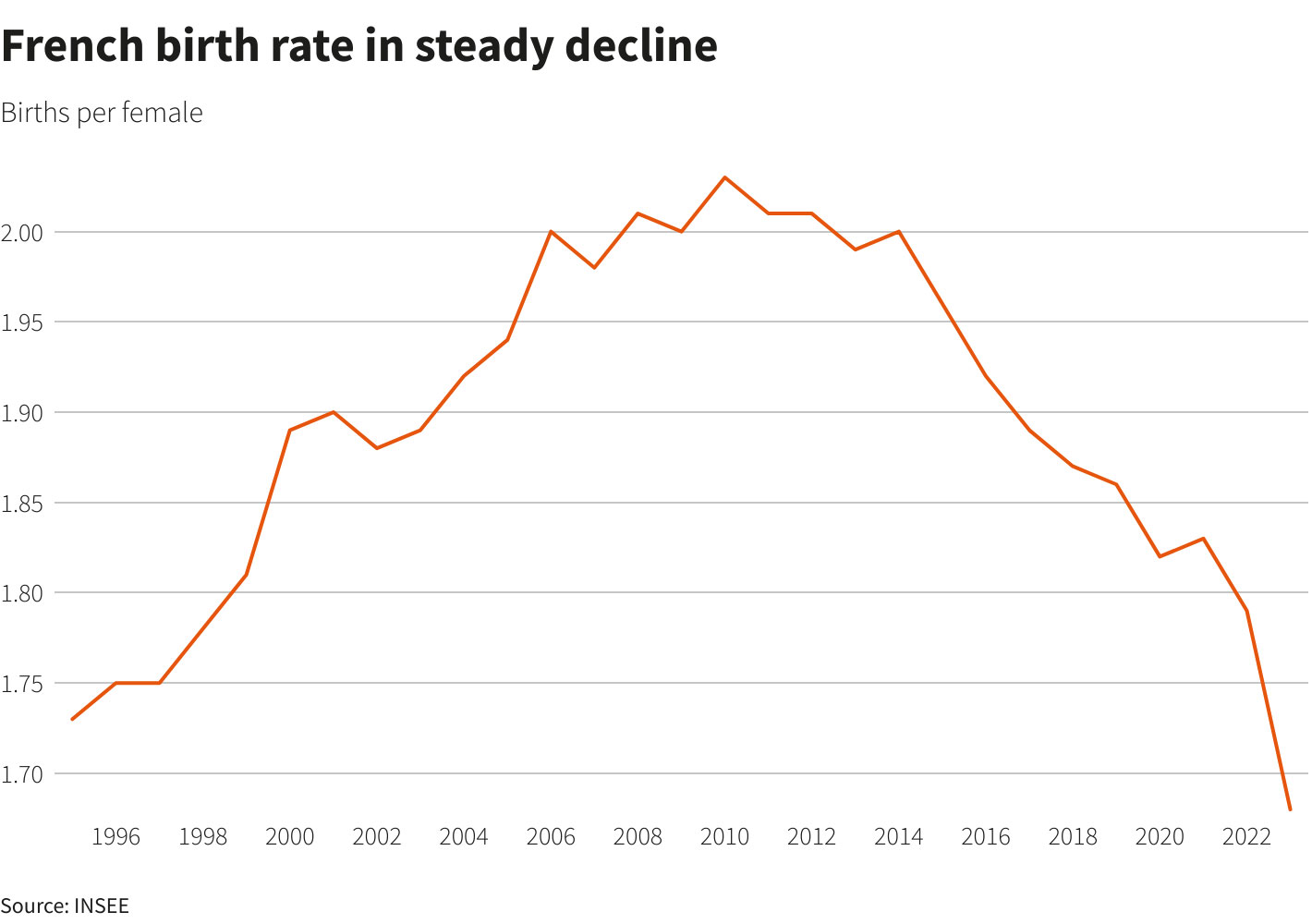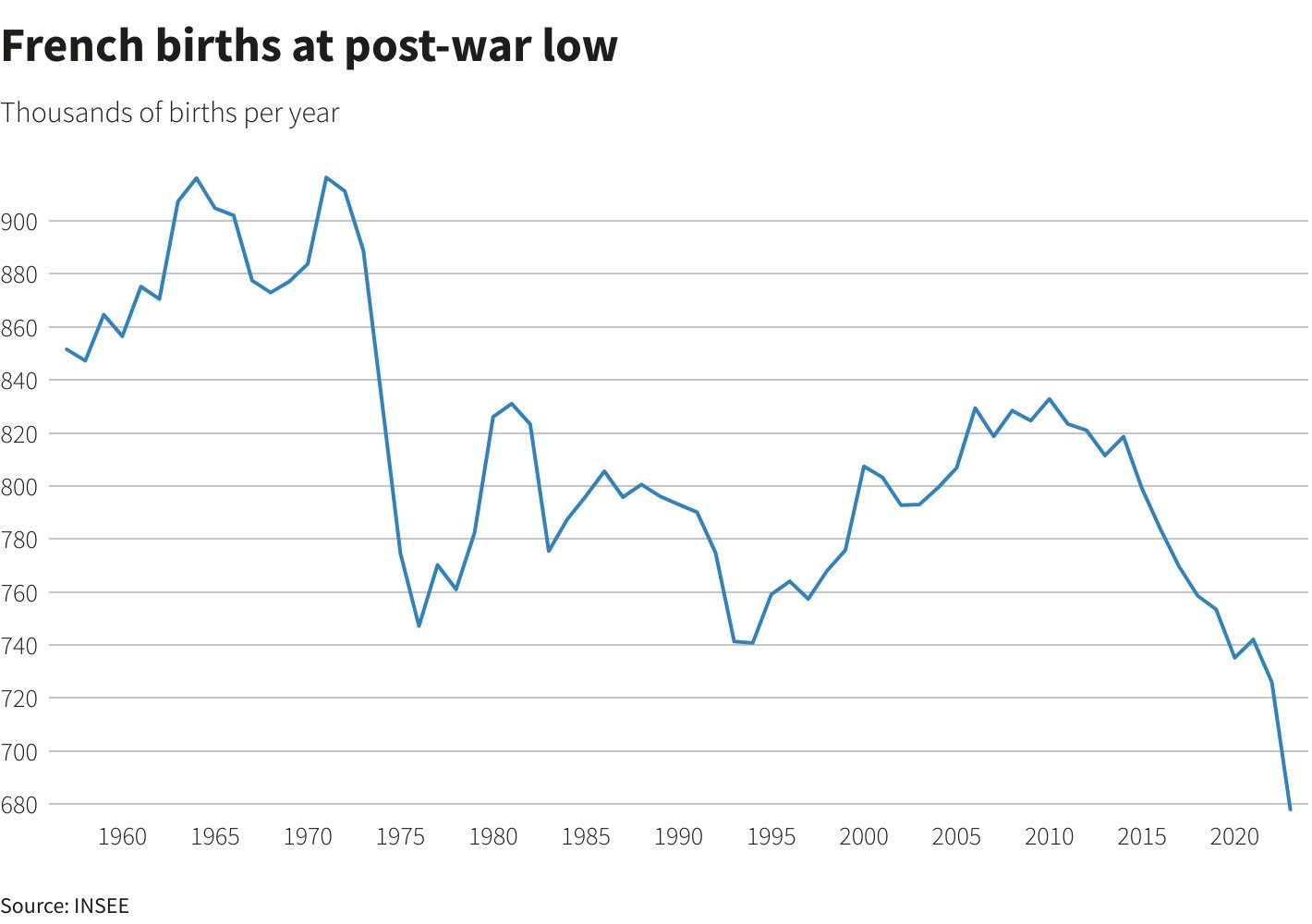French President Emmanuel Macron has pledged a comprehensive reform of parental leave in response to the country witnessing the lowest number of births since World War Two, Reuters reported.
The decline, with 678,000 births in 2023, a 7% reduction from 2022 and a 20% drop from the 2020 peak, poses a challenge to France’s traditionally robust demographic profile.
France, standing apart from European counterparts in maintaining birth rates, attributes its resilience to a robust health and childcare system, coupled with incentives for having children.

However, demographic shifts impact the country’s long-term growth prospects, traditionally influenced by demographics, productivity gains, and labour force participation.
During a news conference, Macron emphasised the need for a revived birth rate, stating: “France will only be stronger if it revives the birth rate.” The proposed overhaul includes better-paid parental leave, enabling both parents to spend six months with their children if desired.
French parents can currently take additional parental leave for one year, with the possibility of renewal, but it pays slightly more than 400 euros per month. Macron highlighted financial strain and prolonged disconnection of mothers from the labour market as concerns to be addressed.

The average number of children per mother hit a three-decade low of 1.68 in 2023, challenging the 2.2 considered necessary for population maintenance in developed countries. This figure is also below the 1.8 births estimate that supported a controversial 2023 retirement reform, raising doubts about its impact on reducing the pension deficit.
Household confidence, battered by successive crises such as the COVID-19 outbreak, soaring energy prices, and record inflation, has struggled to recover from mid-2022 lows, according to INSEE’s monthly survey.






